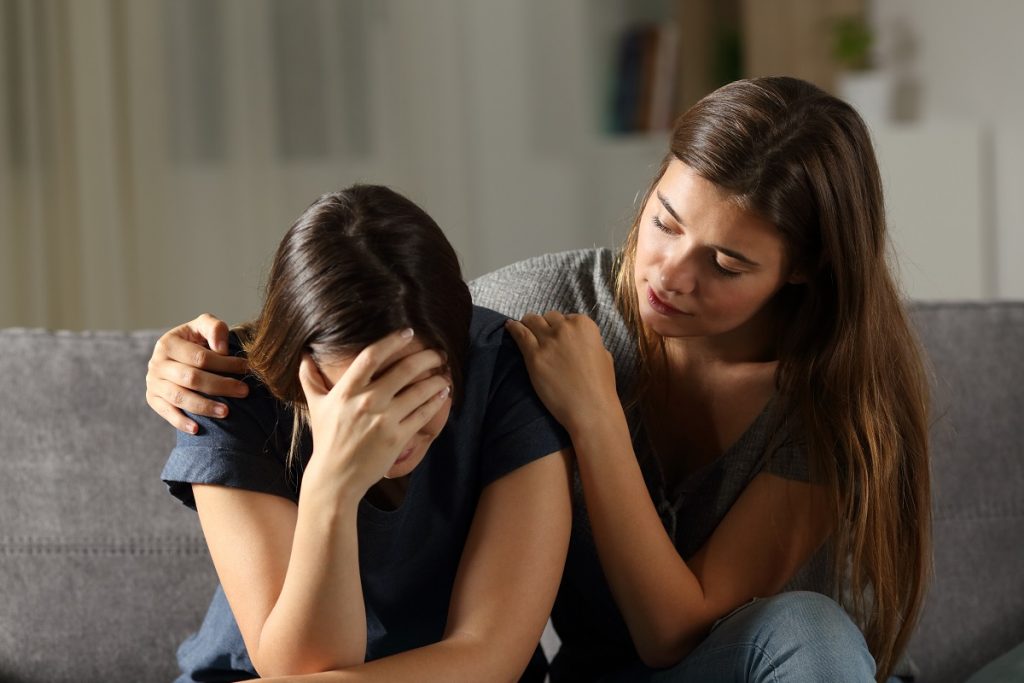It’s no secret that women are under immense pressure to meet unrealistic beauty standards. You’re bombarded with photoshopped images of “perfect” bodies in the media, and it can be easy to fall into the trap of comparing yourself to these unrealistic ideals. But what many don’t realize is that this comparison can have serious negative consequences for your health. Comparing yourself to these unrealistic standards and finding yourself wanting can lead to low self-esteem. And low self-esteem can have many physical and mental health impacts, including:
Increased Risk for Depression and Anxiety
The most common mental health disorders in the United States include depression and anxiety. Both can be triggered or exacerbated by low self-esteem. If you feel bad about yourself, you’re more likely to ruminate on negative thoughts and believe you’re not good enough. This can lead to a downward spiral of negative thinking that can be hard to break out of. Ultimately, this will affect your mood and how you interact with the world, which can further impact your overall mental health. It may even result in physical health issues such as headaches and sleeping issues. If you experience any of these symptoms, it’s vital to seek professional help, as a low self-esteem can be difficult to overcome on your own, especially if it’s accompanied by depression or anxiety. However, you can prevent the worsening of low self-esteem by trying self-care techniques. This includes journaling, practicing positive self-talk, or participating in activities that make you feel good about yourself. This will help you to build up your self-esteem and give you the strength to fight negative thoughts when they occur.
Rising Likelihood of Developing Eating Disorders
People with low self-esteem and body image issues are more likely to see themselves as overweight, even if they are not. This can lead to extreme dieting and other unhealthy weight-loss practices. Many often turn to food to cope with negative emotions. Once used in excess can lead to developing eating disorders such as anorexia nervosa, bulimia nervosa, and binge eating disorder. Suppose you find yourself using food to cope with your emotions. In that case, it’s essential to reach out for help from treatment centers that specializes in eating disorders. You can avail of their comprehensive eating disorder inpatient services to get the 24/7 help and support you need to recover. Doing so will not only improve your physical health, but it will also help improve your mental and emotional well-being.

Gateway to Unhealthy Coping Mechanisms
Low self-esteem can also be a gateway to unhealthy coping mechanisms such as smoking, alcohol abuse, and other risky behaviors. While resorting to these unhealthy means is also likely further brought on by other factors such as stress, trauma, and mental illness, they can be further intensified by feelings of low self-worth. People who feel they are not good enough or do not deserve better turn to these substances and activities to cope with or mask their negative feelings about themselves. These unhealthy coping mechanisms can lead to further health problems like cancer, organ damage, and addiction. If you find yourself using unhealthy coping mechanisms, it’s important to reach out for help from a mental health professional or addiction specialist. This will help you find and develop healthy coping mechanisms, eventually leading to a better sense of self-worth.
Significant Impacts on Social Relationships
People with low self-esteem feel they’re not good enough or don’t deserve good things in life. They may find it hard to cope with day-to-day problems and don’t usually think they can achieve their goals. Low self-esteem can impact every area of your life, from personal relationships to work performance. If you have low self-esteem, you may find it difficult to assert yourself or speak up for what you want. This can lead to conflict in your personal relationships. For example, you may put up with bad treatment from a partner because you think you don’t deserve any better. Or, you might find it hard to take on new challenges at work because you don’t believe you can succeed. These negative beliefs about yourself can hold you back in life and make it difficult to reach your full potential. That’s why it’s essential to have a support system to whom you can feel safe to share your feelings and who can understand that you’re going through a tough time. Likewise, you should take steps toward building your self-esteem so you can feel more confident in yourself and your abilities.
Low self-esteem is more than just feeling bad about yourself — it can impact your physical and mental well-being. Remember that help is always available if you’re struggling to cope. With professional help and your own support system, you can work on building up your self-esteem and improving your overall health!



